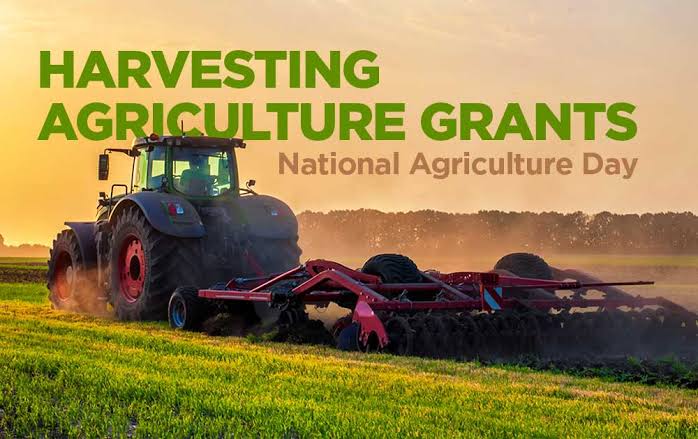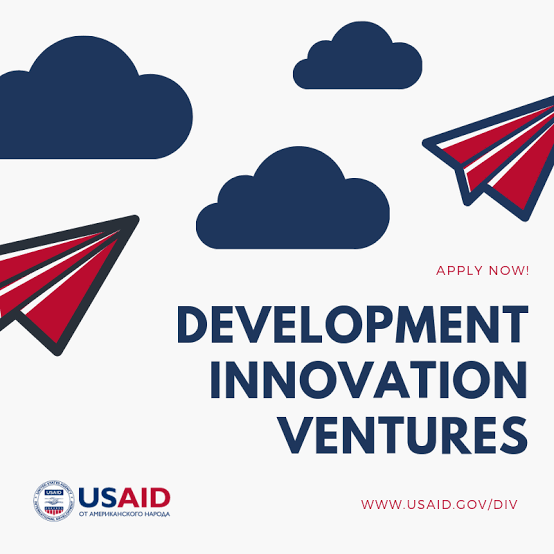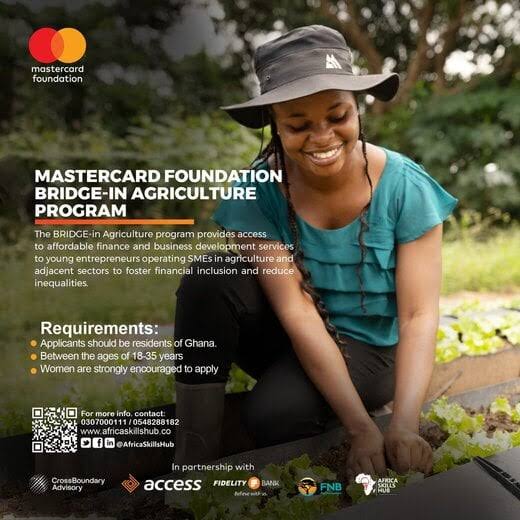Innovation and sustainable practices are key to addressing global food security challenges. To support these endeavors, numerous international organizations and foundations offer a variety of agricultural grants. These grants provide crucial funding for research, development, and implementation of innovative agricultural projects.
In this blog post, we will delve into some of the top international agricultural grants available in 2024. These grants offer opportunities for individuals, organizations, and businesses to contribute to agricultural advancements and make a positive impact on communities worldwide.
Key Takeaways
- Depending on the specific grant you’re applying for, you may need to submit additional documents such as letters from community leaders, partners, or beneficiaries, resumes of key personnel involved in the project, references from previous projects or employers and financial statements for previous years (if applicable).
- By preparing a comprehensive and well-written grant application, you can increase your chances of securing the funding you need.
Basic Requirements to Have Before Applying for an Agricultural Grant

When applying for a grant to support your business, having a well-prepared application is crucial. This involves submitting a comprehensive set of documents that demonstrate your project’s viability and potential impact.
Here is a breakdown of the essential requirements you need before applying for a grant.
Business Plan
Your business plan is the cornerstone of your grant application. It should provide a detailed overview of your business. These are the essentials parts of a good business plan:
- Executive summary: A concise overview of your business, its goals, and the funding you’re seeking.
- Company description: A detailed description of your business, its products or services, and its target market.
- Market analysis: A thorough analysis of your industry, competitors, and market trends.
- Management team: Information about your team’s qualifications and experience.
- Financial projections: Detailed financial statements, including income statements, balance sheets, and cash flow projections.
- Funding request: A clear statement of the amount of funding you’re requesting and how it will be used.
Business Registration/License
Proof of your business’s legal status is essential for grant applications. This may include the following:
- Certificate of incorporation: If your business is a limited liability company (LLC) or corporation.
- Business registration certificate: If your business is a sole proprietorship or partnership.
- Relevant licenses or permits: Any licenses or permits required for your business operations.
Proposal or Application
The proposal or application form is where you will provide specific details about your project. It typically includes these:
- A project summary: A brief overview of your project’s goals and objectives.
- Project description: A detailed explanation of your project, including its activities, timeline, and expected outcomes.
- Budget: A detailed budget outlining your project’s costs and revenue sources.
- Evaluation criteria: How you will measure the success of your project.
- Sustainability plan: A plan for how your project will continue after the grant funding ends.
By following our tips on preparing a comprehensive and well-written grant application, you can increase your chances of securing the funding you need to support your business.
Additional documents that may be required
Depending on the specific grant you’re applying for, you may need to submit additional documents such as letters from community leaders, partners, or beneficiaries, resumes of key personnel involved in the project, references from previous projects or employers and financial statements for previous years (if applicable).
Top 7 Ongoing International Agricultural Grants for 2024
If you want to make a significant impact on the global agricultural sector, then discover a wealth of funding opportunities with our curated list of top international agricultural grants. These grants offer invaluable support for innovative projects, research, and sustainable initiatives.
- WE4F’s Open Call for Innovations 2024
- develoPPP Classic
- Global Innovation Fund
- Development Innovation Ventures (DIV)
- The Agribusiness Challenge Fund
- BRIDGE-in Agriculture Training Program in Ghana
- Food Security for Kenya
1. WE4F’s (Water and Energy for food) Open Call for Innovations

Open Call for Innovation (O-CFI) Water and Energy for Food (A Grand Challenge for Development) is looking for new ideas to help people produce more food with less water and energy. They want to help people who work in the food industry, from farmers to consumers, and make sure everyone has enough food to eat. They want to impact food security, gender, and poverty reduction while protecting the environment.
Each award can be worth between $40,000 and $250,000, depending on what kind of funding is needed. The winner must also match this amount with their own money. The awards are for up to two years, but the exact time will be decided when the award is given.WE4F wants to help poor and vulnerable men and women, small farmers, and others who work in the food industry.
Eligibility Criteria
- Must be a legally incorporated or registered entity, either for-profit or not-for-profit.
- Must have a revenue track record and be able to sustain operations independently.
- Must demonstrate a focus on the water-energy-food nexus and have a proven revenue model related to this area.
- WE4F welcomes applications from organizations of all sizes, with a particular emphasis on small and medium enterprises (SMEs).
- Must be based in or operating in Southern and Central Africa.
- Application responses must be written in either English or French.
- Applicants must provide matching funds equal to the grant amount, either in cash or in-kind contributions.
- Must have an established presence in Southern and Central Africa or have a local partner operating since at least January 2023.
- Innovations must directly link water, energy, and the food value chain.
- Must demonstrate a positive impact on the environment, gender equality, and poverty reduction.
- Must have data collection tools in place to track end-users, contact information, income levels, and gender.
- Encourages applications from women-owned or women-led businesses.
- Government entities are not eligible to apply for funding also, individuals cannot apply for grants under this program.
2. develoPPP Classic

develoPPP classic is a funding programme of the German Federal Ministry for Economic Cooperation and Development (BMZ). It is aimed at medium-sized and large companies that want to invest sustainably in a developing or emerging country and expand their operational activities locally. If your business is good for the environment and helps people in the country you’re investing in, you might be eligible for a grant of up to two million euros.
Criteria for qualification
- Your business must be privately owned.
- Be making a profit.
- Be registered in a European country.
- Your project must help the country you’re investing in grow and develop.
You can apply from November 15th to December 31st 2024.
3. Global Innovation Fund

Innovation fund that supports innovators at all stages of their life cycle, from start-up and pilot testing through to larger scale implementation. Through grants, loans (including convertible debt) and equity investments ranging from $50,000 to $15 million, GIF supports innovations with the potential for social impact at a large scale, whether new technologies, business models, policy practices, technologies, or behavioural insights.
They accept applications working in any sector in any developing country. Any type of organisation may apply. This includes social enterprises, for-profit companies, non-profit organisations, government agencies, international organisations, and research institutions in any country. It is recommended that individual innovators, entrepreneurs, or researchers apply through an affiliated organisation.
Deadline: Applications are accepted on a rolling basis.
4. Development Innovation Ventures (DIV)

DIV is a program run by USAID and provides grant funding for innovators and researchers to test new ideas, take strategic risks, build evidence of what works, and advance the best solutions in all sectors. For your application to be considered you must have these:
- propose approaches that have the potential to be better than existing development practice,
- have or will obtain hard evidence of their impact,
- have a stellar team, and
- have credible plans to reach millions of people at the Bottom-of-the-Pyramid (BoP).
If you are interested in applying, then verify that you are eligible through their Self-Screening Questionnaire, determine whether your project is a good candidate for DIV funding by reviewing their DIV Annual Program Statement and browsing current and past grantees in DIV’s portfolio.
Understand the differences between the stages of DIV funding, and determine which is most appropriate for you.
Their three core principles are:
- rigorous evidence of impact,
- cost-effectiveness,
- and a viable pathway to scale and sustainability via the market or public sector.
DIV assesses each applicant through the lens of these principles, as it relates to the stage or type of funding you are seeking.
5. The Agribusiness Challenge Fund

This is a challenge fund that offers direct financial support to address the resource flow barriers faced by SMEs looking to scale-up and, in turn, create and sustain employment opportunities for young women and men. Agribusiness SMEs will be eligible to receive grants between US$ 500,000 and US$ 2,500,000
Eligibility criteria
- Be involved in the sector of focus i.e., agriculture.
- Be an existing for-profit Small or Medium-sized Enterprise.
- Be implementing business in at least one of the 20 focus countries in Africa.
- Be requesting financial support within the funding limits of US$ 500,000 and US$ 2,500,000.
- Be providing matching contribution of at least 30% of the total project cost.
- Have innovative, practical, and scalable businesses that aim to create work opportunities for young women and men, young people with disabilities or refugee youth.
Deadline: Rolling call for proposals open from 18 March 2024 to 22 November 2024, with three application harvest periods in between.
6. BRIDGE-in Agriculture Training Program in Ghana

If you want to learn new skills to find a job or start your own business in agriculture, The BRIDGE-in Agriculture program has been made to teach you skills you need to succeed in agriculture and related businesses. Two experienced companies in Ghana (Africa Skills Hub and Mind builders Africa) will teach the program.
The program covers topics like farming, food processing, selling things used in farming, and technology for agriculture. It also covers other businesses in the food industry, like restaurants and research.
Loan amounts available to SMEs in agriculture and adjacent sectors will vary depending on the needs of the business and can go up to 11million Ghana cedis. Additional resources and benefits available to loan applicants may include referral for training, that is to be determined by program representatives at the screening stage.
Eligibility criteria
- To get a loan, your business must be new or small and have been making money for at least 6 months.
- Your business must also be in agriculture or a related business
- It must be owned or run by young people or women.
- You must also be based in middle or southern Ghana.
Deadline: Program is ongoing.
7. Food Security for Kenya

If you an entrepreneur running a micro or small enterprise that contributes to sufficient, safe and/or nutritious food and agricultural production in Kenya, then the new WIDU Local Call, #Food Call Kenya, is your opportunity to scale-up or start off your business. Targeted sectors for this funding are farming and food production, agri-services food processing, nutritional health, reduction of food waste and IT and data for food security.
Entrepreneurs who join the program must invest between 30,000 Kenyan shillingd and 120,000 Kenyan shillings.WIDU will then give them 2.5 times that amount as a grant. This means they can get up to 300,000 Kenyan shillings that they don’t have to pay back.
Funding program is currently ongoing and available for agric entrepreneurs in Kenya.
Conclusion
As we’ve explored in this blog post, the international agricultural landscape offers a wealth of funding opportunities for individuals, organizations, and businesses seeking to drive innovation and sustainability. The top international agricultural grants highlighted in this article provide crucial support for research, development, and implementation of impactful agriculture related projects.
By taking advantage of these grants, agricultural entrepreneurs can contribute to addressing global food security challenges, promoting sustainable practices, and empowering communities worldwide. As the agricultural sector continues to evolve, these grants serve as vital catalysts for positive change.
Remember to check for updates on grant eligibility criteria, deadlines, and application processes as they may change over time.
FAQs
What is the typical application process for international agricultural grants?
The application process typically involves submitting a detailed proposal, providing supporting documentation, and undergoing a review process.
How much funding can I expect to receive from an international agricultural grant?
Grant amounts vary widely depending on the funder, project scope, and geographic location.
What are some common mistakes to avoid in a grant application?
Common mistakes include incomplete applications, lack of clarity, and failure to address the funder’s priorities.


